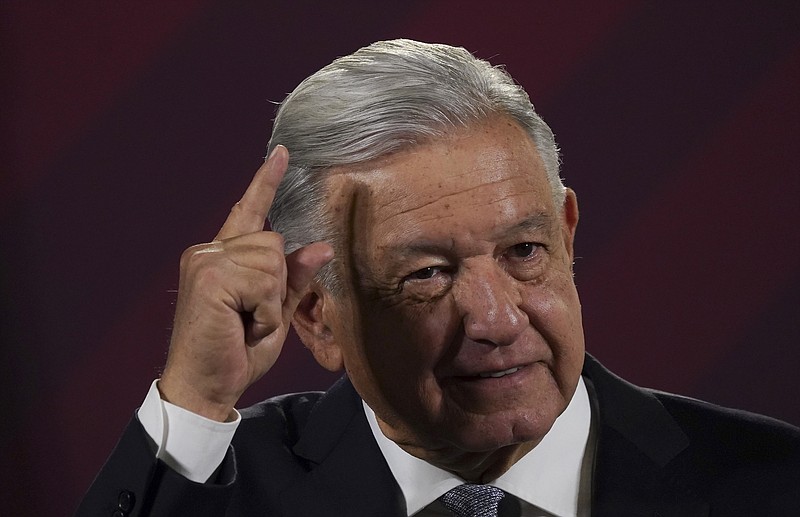Ken Salazar, the U.S. ambassador to Mexico, met with the Los Angeles Times for more than an hour while visiting California in November. He was eager to talk up the celebrations surrounding the U.S.-Mexico diplomacy bicentennial. We were eager to talk about the border. The pas de deux featured a lot of platitudes, a couple of tense moments, and a number I can't shake: 13,000.
That was the estimate Salazar gave for the number of Mexicans who were studying at our universities at the time. Many of us were surprised to hear it was so low. We've been friends with Mexico for 200 years, and that's all our diplomacy could muster? By comparison, our geopolitical adversary China had north of 300,000 on our campuses.
Instead of sending 300,000 college students to the U.S. like China does, Mexico is being trampled by those two giants: China funnels fentanyl through Mexico to the U.S. market, and the U.S. exports guns to Mexico so the cartels can protect their product.
When drugs and guns claim lives on both sides of the U.S.'s Southern border, Mexico is chastised for not doing more. More what exactly? President Andrés Manuel López Obrador had his own critique for Americans this month: "Why don't you take care of your young people? Why don't you take care of the serious problem of social decay? Why don't [you] temper the constant increase in drug consumption?"
Those remarks came after Mexican authorities rescued the two Americans who were kidnapped by members of a drug cartel in Tamaulipas state this month. Two others were killed.
He raises reasonable questions. American politicians don't have great answers to offer, though.
Instead, after the kidnappings, calls for U.S. military intervention have grown in some conservative circles. This on the heels of 21 attorneys general calling for President Biden to designate the cartels as terrorist organizations -- sometimes a useful tool to cut off financing, but also potentially a dangerous pretext for escalation and military intervention.
And can you imagine if the U.S. were to send troops into Mexico? They would face a vast arsenal of weapons made in America.
That's not Mexico's fault. The nation has no equivalent to the Second Amendment. Roughly 50 gun permits are issued per year. There's only one store in all of Mexico where it is legal to buy a gun, and it is controlled by the military. Legal gun sales in Mexico are not the problem.
However it is estimated that more than 200,000 guns are trafficked into Mexico from the U.S. each year. The U.S. gun industry has been arming Mexican drug cartels for as long as there have been Mexican drug cartels.
Up to 90% of guns used in crimes in Mexico and traced turn out to have originated in the U.S., mostly Arizona and Texas. Gun proliferation has made mass shootings common at home -- last year was the deadliest yet -- and now our pastime has been exported to Mexico.
The U.S. is the major customer keeping Mexican cartels in business. We're the major supplier of the guns that make them so deadly. This is the relationship we have created with Mexico.
Chinese students benefit from the U.S. educational system because they're paying top dollar. Meanwhile our neighbors, with whom the U.S. is so proud to have had diplomatic relations for 200 years, are barely represented in an educational exchange that could benefit both sides of the border.
This dynamic exposes the inherent flaw in our approach to foreign policy. We expect other nations to be the ideological purists we lack the fortitude to be. And every now and then a world leader reminds us of our hypocrisy.
Sometimes it comes from an enemy like Russian President Vladimir Putin, who recently called out America's own social ills after critiques from Biden.
Sometimes it's a friend like López Obrador.
We supply most of the world's guns. We have long been the most prolific drug users in the world. And what do we do? Blame one of our oldest friends for the trouble we've caused.
The Los Angeles Times
